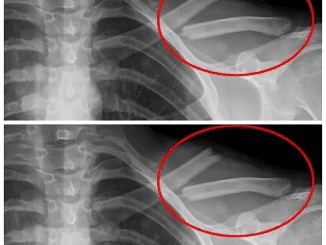Hannah Murray, known for her iconic roles as Gilly in Game of Thrones and Cassie in Skins, has opened up about a deeply personal chapter of her life in an upcoming memoir. The 35-year-old actress has revealed that she was once sectioned due to her involvement in a manipulative cult. This shocking revelation has piqued significant interest, offering an inside look at the darker side of her journey post-acting fame.

Hannah Murray’s Memoir: A Personal Story of Survival
A Glimpse into the Memoir
Set for release in summer 2026, Murray’s memoir promises to be more than just an account of her acting career. According to The Bookseller, the memoir will delve into the psychological manipulation she endured within a cult-like organization.
A Message from Murray
Murray described the book as “a deeply personal story that has lived inside me for many years.” She expressed her excitement about working with her publisher, Helen Conford, at Hutchinson Heinemann, noting that Conford’s vision for the memoir aligns perfectly with hers. The memoir was acquired after a fierce 13-way auction, reflecting its anticipated impact and the public’s curiosity.
The Lure of Cults: An Insider’s Perspective
The Manipulation of Vulnerability
Murray’s memoir is expected to provide a chilling exploration of the psychological tactics employed by cults to recruit and manipulate individuals. The book will focus on the seductive promises of “wellness” and salvation offered by such organizations. This perspective highlights how seemingly benevolent movements can exploit the emotional and psychological vulnerabilities of those seeking guidance, community, or self-improvement.
Blurring Reality and Illusion
Hutchinson Heinemann describes the memoir as a narrative that “blurs the line between what is real and what is an illusion.” This concept touches on the idea that cults often prey on the innate human desire for belonging and purpose. They present an alternate reality that appeals to wishful thinking, making it difficult to distinguish fact from fiction.
The Dark Side of Hollywood: Vulnerability and Exploitation
The Pressures of the Acting World
The entertainment industry is no stranger to stories of manipulation and mental strain. Actors often face immense pressures, and the portrayal of roles that require vulnerability can sometimes extend beyond the screen. In Murray’s case, it appears that her involvement in the cult may have been fueled by the vulnerability that followed her rapid rise to fame.
Returning to Academia: A Search for Stability
Following the conclusion of Game of Thrones, Murray took a break from acting to study English Literature at Queen’s College, Cambridge University. She spoke about her decision to return to education during a 2019 interview with Loose Women, explaining that she needed time away from the industry to focus on her love for literature. This step could be seen as a bid for stability after the chaotic experience of fame and the psychological strain of being part of a cult.

The Appeal of Wellness Movements
Why Do People Join Cults?
The allure of cults often lies in their promises of healing, empowerment, and spiritual growth. Many who join these groups are seeking personal transformation, emotional support, or solutions to life’s challenges. Murray’s memoir aims to shed light on how cults position themselves as the answer to these needs, luring individuals with promises of “wellness” and self-discovery.
Wellness or Deception?
While wellness movements often have positive intentions, there is a darker side when these groups become exploitative. The line between genuine self-help and deceptive manipulation can be thin, and Murray’s experience serves as a stark reminder of this fact. Her memoir is expected to critically examine the deceptive nature of these groups, raising awareness about the potential dangers hidden behind the facade of personal development.

Credit: Jason LaVeris / Getty
Life After Game of Thrones: Reflecting on a Phenomenon
The End of an Era
Murray described the conclusion of Game of Thrones as akin to finishing school or university. She reflected on the bond she shared with her co-stars and the sense of loss she felt after the show ended. Murray mentioned that it would take time for her to fully comprehend the magnitude of being part of the world’s biggest television phenomenon.
Adjusting to Life After Fame
For actors, transitioning from iconic roles can be challenging. Murray’s experience post-Game of Thrones was no exception. The abrupt shift from intense filming schedules to a quieter, less structured life can create a void, making actors susceptible to seeking meaning or structure elsewhere. In Murray’s case, this search led her down a path toward cult involvement, demonstrating the vulnerability that can accompany sudden lifestyle changes.
What We Can Learn from Hannah Murray’s Story
Raising Awareness About Cults
Murray’s memoir is not just a personal story; it’s a broader commentary on the dangers of cults and the importance of mental health awareness. By sharing her experience, Murray hopes to encourage others to be cautious of organizations that claim to have all the answers, particularly those that target emotional vulnerabilities.

Credit: Jeff Kravitz / Getty
The Importance of Mental Health Support
Murray’s story also highlights the need for robust mental health support systems, especially for individuals transitioning out of high-stress environments like the entertainment industry. The memoir is likely to emphasize the significance of seeking genuine help from licensed professionals rather than turning to groups that exploit personal struggles.
Conclusion: An Eye-Opening Tale of Survival and Resilience
Hannah Murray’s upcoming memoir is set to be an eye-opening read, offering a glimpse into her personal battle with psychological manipulation and cult dynamics. It’s a story that goes beyond her acting career, shedding light on the vulnerabilities that can affect anyone, regardless of fame or success. By sharing her experience, Murray not only takes a brave step in reclaiming her narrative but also provides a cautionary tale about the seductive lure of groups that promise healing but deliver harm. As we await its release, one thing is clear: this memoir is bound to leave a lasting impact, challenging readers to question what they accept as true and what they choose to believe.


